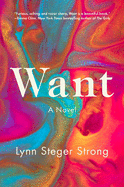
| Publisher: | Holt | |
| Genre: | Friendship, Family Life, General, Literary, Fiction | |
| ISBN: | 9781250247544 | |
| Pub Date: | July 2020 | |
| Price: | $25.99 |
| Starred | Fiction |
by Lynn Steger Strong
In Lynn Steger Strong's Want, a deep sense of need and desire thrums beneath perfectly concise, staccato prose that tells the story of a woman caught in the frustrations (and fury) of living a life she never imagined for herself.
Elizabeth and her husband have several degrees, two children and a mountain of debt. On the brink of declaring bankruptcy, the two cobble together jobs to try to make ends meet. But keeping up appearances is starting to push Elizabeth over the edge. She leaves work to walk the city for hours on end. She texts her best friend from high school, with whom she has a fractured, nearly non-existent relationship as an adult. She contemplates asking her wealthy but eternally disappointed parents for money. Most importantly, she wants. She wants to understand the world, and her place in it. She wants to have a dream, a vision, hope. "I want to not be someone who says no all the time to every impulse," she says to herself, to no one, to anyone who will listen. "I want to not make every choice because it is my only choice."
The word "want" appears in the text more than 200 times in Strong's aptly titled novel, taking on every possible nuance and definition associated with it. The pages crackle with a sense of desire, of need, of desperation and hope and longing in this smart story of a woman who wants--no, needs--to find herself, rather than acquiescing to what others want for and from her. Want is a novel of modern womanhood that is not to be missed. --Kerry McHugh, blogger at Entomology of a Bookworm
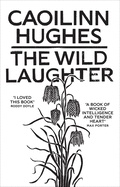
| Publisher: | ONEWorld Publications | |
| Genre: | Family Life, General, Literary, Fiction | |
| ISBN: | 9781786077806 | |
| Pub Date: | July 2020 | |
| Price: | $24.95 |
| Fiction |
by Caoilinn Hughes
Few nations felt the sting of the global recession that began in 2007 more than Ireland, when its roaring "Celtic Tiger" economy imploded. Caoilinn Hughes (Orchid & the Wasp) sets her second novel--a taut, acerbic family drama--against the backdrop of that economic cataclysm in her native land.
Like many of his countrymen, farmer Manus Black falls for the lure of a can't-miss investment in apartments in Spain and Bulgaria, only to lose all when the real estate market collapses. Overnight he's transformed from a comfortable, if hardworking, landowner to an impoverished debtor staring financial ruin in the face in a heavily mortgaged house "that had gone up in value by three hundred percent in a decade and dropped nearly that again in year." By the fall of 2014, his financial woes are compounded by the relentless advance of terminal cancer, an affliction that leads him to hint to his sons, Cormac and Doharty, the novel's narrator, that he wants their assistance in hastening his departure from the world.
The Black siblings are loyal to their imposing father, and dutifully go about trying to carry out his last wishes. But when their hastily researched and haphazardly executed plan goes awry, legal consequences ensue, compounding the tragedy of Manus's death and heightening the tensions that frequently bubble to the surface in the family. With frequent flashes of humor, "the thing austerity couldn't touch," Hughes skillfully captures the flickering tension between brothers separated by two years. The Wild Laughter is a compact but potent novel that explores its themes of love, loyalty and sibling rivalry with keen insight. --Harvey Freedenberg, freelance reviewer
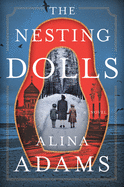
| Publisher: | Harper | |
| Genre: | Women, General, Fiction, Historical, Jewish | |
| ISBN: | 9780062910943 | |
| Pub Date: | July 2020 | |
| Price: | $27.99 |
| Fiction |
by Alina Adams
Just follow the rules and everything will be all right. That's what Daria Gordon tells her two young daughters--and herself--when her family is snatched from their home in 1930s Odessa, Ukraine, and taken to a Siberian work camp. But conditions at the camp are appalling, and Daria is forced to make impossible choices to survive. Daria's granddaughter, Natasha, a brilliant mathematician, has always heard a similar refrain: work hard and you will be rewarded. But when she's denied a place at university because she is Jewish, Natasha begins to make different and potentially dangerous choices. In her sweeping debut novel, The Nesting Dolls, Alina Adams braids together the stories of five generations of strong women, extending all the way to Daria's great-great-granddaughter, Zoe, in present-day Brighton Beach, Brooklyn.
Like her grandmothers, Zoe has heard a particular set of messages her entire life: work hard, don't shame the family, find a nice Russian Jewish boy to marry. While she's helping plan her grandparents' anniversary party, Zoe meets Alex, an entrepreneur who seems to check all her family's boxes. But the more she gets to know Alex, the more Zoe wonders if he's really right for her--and the more she wonders whether she'll find happiness by following everyone else's rules. Bittersweet, richly detailed and often wryly entertaining, The Nesting Dolls is a compelling family saga, a commentary on the sacrifices women make for their loved ones and an incisive glimpse into the effects of the Soviet state on its citizens' lives. --Katie Noah Gibson, blogger at Cakes, Tea and Dreams
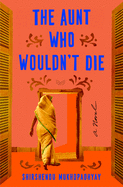
| Publisher: | HarperVia | |
| Genre: | Women, Family Life, Magical Realism, Marriage & Divorce, Fiction | |
| ISBN: | 9780062976321 | |
| Pub Date: | July 2020 | |
| Price: | $22.99 |
| Fiction |
by Shirshendu Mukhopadhyay, trans. by Arunava Sinha
As spare as it might initially seem, Shirshendu Mukhopadhyay's wickedly entertaining novel, The Aunt Who Wouldn't Die, manages smoothly to illuminate gender inequity, cultural biases, socioeconomic disparity and familial dysfunction through a three-generational ghost story.
At 18, Somlata is wed to her 32-year-old husband, the "blissfully unemployed" youngest of an aristocratic family in serious decline. In the crumbling, sprawling household, Somlata discovers the newly dead Pishima, the family's tyrannical de facto matriarch. Married at eight, widowed at 12, Pishima endured a long life of isolated deprivation. In death, her ghost entrusts Somlata with a secret wooden box of vast riches, not as a gift, but as postmortem revenge against the family members who were more jailers than caregivers. Only Somlata can see and hear Pishima, who is now unabashedly raging, rude, even lewd. Between Pishima's taunting and needling, Somlata claims her own agency, unexpectedly silencing her detractors, manipulating the extended family toward recovery, reclaiming her philandering husband, birthing the long-awaited next generation and eventually providing Pishima some semblance of peace.
The Bengali octogenarian author's novel arrives in the U.S. with significant history already attached. Originally published in 1993, the novel--considered a contemporary classic--was adapted as the film Goynar Baksho in 2013 by director Aparna Sen. Award-winning translator Arunava Sinha clearly relished his work here, especially in resurrecting Pishima, whose post-death vocabulary becomes impressively profane: "It's not every day that a translator can dip into the gutter running through their heads in search of suitable words while performing a literary enterprise," Sinha muses in his ending note. For lucky English-speaking readers, that performance proves to be a splendidly engrossing feat. --Terry Hong, Smithsonian BookDragon
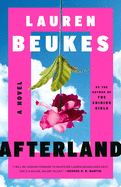
| Publisher: | Mulholland | |
| Genre: | Dystopian, General, Crime & Mystery, Suspense, Thrillers, Fiction, Technological, Science Fiction | |
| ISBN: | 9780316267830 | |
| Pub Date: | July 2020 | |
| Price: | $28 |
| Mystery & Thriller |
by Lauren Beukes
"You can't imagine how much the world can change in six months." Oh, but yes we can! With remarkable prescience, Lauren Beukes's Afterland takes on an "unprecedented global pandemic" with chilling results--and surprising comic relief threaded throughout. Six years after the success of Broken Monsters, the South African author sets another disturbing novel in the U.S., creating an epic odyssey of a mother's determination to save her tween son. Their worst threat to safety, alas, is her own sister.
It's 2023, three years since the Human Culgoa Virus, "a highly contagious flu that turns into an aggressive prostate cancer in men and boys," ravaged the world. Twelve-year-old Miles is one of a dwindling set of survivors. Back when life was normal, Miles and his parents, Cole and Devon, flew from their Johannesburg home to spend a Disneyland vacation with relatives. Four months later, cousin Jay is dead. Then Uncle Eric, father Devon. Billions fall. In the government's effort to protect survivors and their immediate families, Miles and Cole end up in California's Ataraxia, "the fanciest prison in the world." Cole just wants to go home to South Africa. When Cole's sister, Billie, arrives, they hatch a plan to break out.
Their success is tempered when Billie reveals the contemptible reason for her ready assistance: harvesting Miles's sperm for black-market riches. Cole's reaction is to swing a tire iron at Billie, and then grab Miles to take to the road. Miles must become Mila for the two years on a cat-and-mice chase across the U.S. that offers titillating thrills, schadenfreude and, most surprisingly (and necessarily), even a few take-me-away snorts and shrieks. --Terry Hong, Smithsonian BookDragon
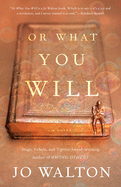
| Publisher: | Tor | |
| Genre: | Fantasy, Contemporary, Fiction, Historical | |
| ISBN: | 9781250308993 | |
| Pub Date: | July 2020 | |
| Price: | $26.99 |
| Science Fiction & Fantasy |
by Jo Walton
Jo Walton's Or What You Will is a clever and curious book that uses stories to ponder the nature of storytelling. Sylvia, author of 30 books over a 40-year career, is working on a new novel set in the same location as some of her earlier works: Thalia, a Florence-like city in a Renaissance-resembling time. But this novel is getting away from her, slowly filling with stories of her own life, the muse that lives inside her head interjecting himself into her writing more frequently. As Sylvia writes, both she and her muse face down their own mortality, even as the Thalian novel grows and spins and fills into itself, full of semi-historical detail and literary traditions (including a cast of characters drawn straight from the pages of various Shakespeare plays).
It takes no small amount of trust to fall into the world that Walton (My Real Children; The Just City) builds here, especially as Or What You Will alternates between the story of Thalia, as told by Sylvia; and the story of Sylvia, as told by the voice in her head; and the story of how the two intersect, as told by some combination of both of them. Walton, like Sylvia and her nameless muse, seems to value "the readers who press on and find it worthwhile, who may frown and blink now and then but keep reading... slip into the reading trance, the stories we spin you." That trust is not misplaced, as the narratives Walton and her quirky narrators tell in Or What You Will promise to delight any reader who appreciates a good story--with an enchanting side of snark. --Kerry McHugh, freelance writer
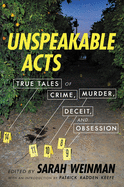
| Publisher: | Ecco | |
| Genre: | True Crime, General, Literary Collections, Social Science, Essays, Criminology | |
| ISBN: | 9780062839886 | |
| Pub Date: | July 2020 | |
| Price: | $18.99 |
| Starred | Social Science |
by Sarah Weinman, editor
In "The Ethical Dilemma of Highbrow True Crime," Alice Bolin concedes that fans of the true-crime genre (herself among them) are arguably "consuming real people's pain for fun." Where does this leave readers of Unspeakable Acts: True Tales of Crime, Murder, Deceit, and Obsession, in which Bolin's essay appears? With a clear conscience. The anthology transcends the genre with not just its high-grade writing but also editor Sarah Weinman's (The Real Lolita) commitment to looking beyond true crime's traditional focus on bad actors and those they act on.
Some of those folks do feature in Unspeakable Acts. Among the most notorious: serial killer Ted Bundy is the subject of Sarah Marshall's "The End of Evil," and a daughter's revenge on a mom with Munchausen syndrome by proxy is outlined in Michelle Dean's "Dee Dee Wanted Her Daughter to Be Sick, Gypsy Wanted Her Mom to Be Murdered," which spawned the Emmy Award-winning Hulu series The Act. But neither killers nor victims get the spotlight in "What Bullets Do to Bodies," Jason Fagone's profile of longtime Philadelphia trauma surgeon Amy Goldberg. And Melissa del Bosque's "Checkpoint Nation," which reports on abuses by the U.S. Border Patrol, deconstructs not a psyche but a system that, like a serial killer, preys on the vulnerable.
Because of the varying approaches to true crime in Unspeakable Acts, the essays will elicit a range of emotions: some of the 13 pieces are infuriating, many are flabbergasting and most are heartbreaking. All are devastating. --Nell Beram, author and freelance writer
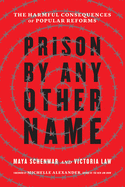
| Publisher: | The New Press | |
| Genre: | Law, General, Criminal Law, Penology, Criminal Procedure, Social Science, Criminology | |
| ISBN: | 9781620973103 | |
| Pub Date: | July 2020 | |
| Price: | $26.99 |
| Social Science |
by Victoria Law, Maya Schenwar
"The book you hold in your hands requires your full attention," writes Michelle Alexander (The New Jim Crow) in the foreword to Prison by Any Other Name by journalists Victoria Law and Maya Schenwar. Truer words have never been spoken. Law and Schenwar make an impassioned case for how popular prison reforms are actually expanding, not shrinking, the state of mass incarceration in the United States--research that is as important as it is timely.
The United States remains "the most incarcerated nation," with roughly 2.3 million people currently held behind bars. Costing a staggering $182 billion per year, it comes as no surprise that Law and Schenwar are able to point to the many instances of bipartisan support for prison reform. But these reforms--including electronic monitoring, house arrest and extended probation--have expanded the concept of incarceration beyond the bounds of the physical prison: "From unremitting 'treatment' requirements to the stifling protocols of the sex offender registry, many of the structures outside of prison [bear] uncanny resemblances to the prison itself: control, punishment, and a constant reminder that your body is not your own--that once the system has you in its clutches, you are the state's to manipulate."
This forms the crux of Law and Schenwar's argument, as they expound on the myriad ways that prison reforms are stretching the boundaries of incarceration in the United States. Drawing on statistics, detailed research and personal anecdotes from people whose lives have been affected by incarceration, Prison by Any Other Name is both eye-opening and challenging. Encouraging readers to center the human lives caught in the broken, racist system in place today, this is crucial reading for anyone with a mind for justice. --Kerry McHugh, freelance writer
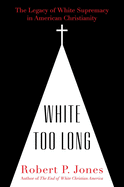
| Publisher: | Simon & Schuster | |
| Genre: | Christian Living, United States, Religion, 21st Century, Christianity, History, Religion, Politics & State, Social Issues | |
| ISBN: | 9781982122867 | |
| Pub Date: | July 2020 | |
| Price: | $28 |
| Religion |
by Robert P. Jones
What happens when religion is coopted and corrupted? How is its hierarchical status quo maintained? Robert P. Jones, CEO and founder of Public Religion Research Institute (PRRI), explains what's at stake with a prophetic voice backed by complex history, data analysis and personal experience (as a product of the South).
Slavery has been called America's original sin, and Jones (The End of White Christian America) lays out the whys and whens of this legacy. He begins with the current moment "between an old and new order" and ends with a call to reckoning. In between, he explores historical context; for instance, many of the myriad monuments now in contention were the result of a campaign by the United Daughters of the Confederacy in the early 20th century to reframe the "Lost Cause" as a God-ordained political and cultural victory.
With religion too often interpreted to prove and sustain white supremacy, the United States has justified colonialism, slavery and systemic racism. And while Southern Baptists are Jones's primary focus, Catholics and mainline Protestants alike have been complicit in creating and maintaining a racist theology, both overtly and subtly, he says. "Reckoning with white supremacy, for us, is now an unavoidable moral choice." The easy way for whites is confession (without repentance) as a transaction for Black forgiveness, thus continuing "normalcy." But white believers (as well as nonbelievers) must get through defense mechanisms and blindness. "Allowing the waves of the past to crash on the shores of the present until the rhythm is familiar enough to ring in the ears... is a critical step and challenge for white Christians who are preoccupied with personal sin and salvation but unburdened by social justice." --Marilyn Dahl
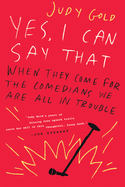
| Publisher: | Dey Street Books | |
| Genre: | Celebrity & Popular Culture, Politics, Censorship, Comedy, Topic, Humor, Performing Arts, Political Science | |
| ISBN: | 9780062953759 | |
| Pub Date: | July 2020 | |
| Price: | $22.99 |
| Humor |
by Judy Gold
Censoring comedians during a time of hyper-political correctness is a serious topic, but two-time Emmy Award-winning standup comedian Judy Gold (25 Questions for a Jewish Mother) tackles the subject with insight, reason and laughs on every page. Gold offers an illuminating history of how censorship of comedians has been around for decades, and has only increased in recent years. Some censorship landmarks discussed include Lenny Bruce's on-stage arrests; Howard Stern's battles with the FCC; CBS's cancellation of the top-rated Smothers Brothers variety TV show; and Kathy Griffin's death threats, FBI investigation and being placed on a no-fly list because she held a Trump mask doused with ketchup. Gold quotes Jon Stewart: "I don't understand why in this country we try to hold comedians to a higher standard we do not hold leaders to."
"The best comedy lives on the edge of what's acceptable," Gold writes. "Jokes are nourished by tension; laughter is a release." Her compelling, well-researched and hilarious book on the freedom of speech from a comedian's perspective offers her an opportunity to spotlight numerous comedians' funniest and most biting material.
Gold's four decades as a standup comedian gives readers an insider's perspective on the industry, the clubs, the audience and other comics. She calls Joan Rivers "the funniest and most fearless of women," while Bill Cosby is "a hypocritical and arrogant rapist prick." Her chapter on beloved-then-reviled comedians like Cosby, Louis C.K. and Roseanne is thoughtful and original. Yes, I Can Say That is a hilarious showcase for edgy comedians and a thoughtful look at standup comedy and the First Amendment. --Kevin Howell, independent reviewer and marketing consultant
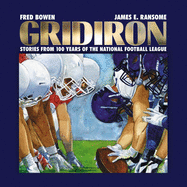
| Publisher: | Margaret K. McElderry Books | |
| Genre: | Biography & Autobiography, Sports & Recreation, United States - 20th Century, History, Football, Juvenile Nonfiction | |
| ISBN: | 9781481481120 | |
| Pub Date: | July 2020 | |
| Price: | $19.99 |
| Starred | Children's & Young Adult |
by Fred Bowen, illust. by James E. Ransome
Seasoned sportswriter Fred Bowen (Speed Demon) celebrates the National Football League's (NFL) centennial anniversary with a rousing look at the organization from its rag-tag start in Canton, Ohio, to its current status as "the most popular sports league in the United States." Through the ups and downs, wins and losses, Bowen deftly chronicles the evolution of an institution that changed the face of U.S. sports.
Bowen breaks the book down into quarters, to mirror a football game. The first quarter kicks off with the NFL's rocky beginnings: no statistics kept, no championship game and no standout star until Red Grange, the Galloping Ghost, joined the Chicago Bears. "People came to see Red Grange but ended up falling in love with this new game--professional football." The following quarters include the birth of the Super Bowl and sudden-death overtime, the first African American MVP and the arrival of the draft. Bowen couples each topic with wonderful nuggets of trivia, like the fact that "a game official had his whistle freeze to his lips" in 1967 during the Green Bay Packers-Dallas Cowboys NFL championship game in Wisconsin, dubbed "The Ice Bowl."
Accenting Bowen's spirited prose are rich, life-like watercolor illustrations by Coretta Scott King Illustrator Award winner and three-time honoree James E. Ransome (The Creation; The Bell Rang; Before She Was Harriet). He expertly captures action and emotion in his brushstrokes, adding to Bowen's report the way a sports photographer would a newspaper story. This symbiotic pairing pays an enthusiastic, respectful homage to U.S. football's professional league. Sports enthusiasts of any age are sure to find it a winner. --Jen Forbus, freelancer
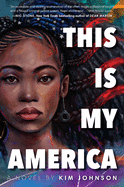
| Publisher: | Random House Books for Young Readers | |
| Genre: | General, Juvenile Fiction | |
| ISBN: | 9780593118764 | |
| Pub Date: | July 2020 | |
| Price: | $17.99 |
| Children's & Young Adult |
by Kim Johnson
This debut YA novel is an incisive condemnation of the racist criminal justice system, mass incarceration and capital punishment.
Seven years ago, Black teen Tracy Beaumont's father was unjustly convicted of murder and is now on death row. Recently, Innocence X (an organization modeled after Bryan Stevenson's Equal Justice Initiative) finally agreed to take on her father's case. But when her scholar athlete brother, Jamal, is accused of murdering the white girl he was secretly dating, he goes on the run and the Beaumont family once again becomes the focus of their Texas town's ire. As Tracy and Innocence X get closer to proving her father's innocence, Tracy also begins to work on clearing her brother's name. The more she learns, the more she finds Jamal and their father's fates are very much intertwined.
Kim Johnson has been a social justice advocate since her teen years, and her experience informs every line of This Is My America. By turns hopeful and heartbreaking, the novel will likely impassion those new to the fight for social justice and empower those already immersed in it. Readers will be outraged by the inhumane and heinous treatment that the Beaumont family endures, especially as things come to a head in a shocking climax in which a burning cross is erected in front of their home. The author frankly captures the Beaumonts' pain and resilience, echoed in the many families who continue to endure similar brutal injustices. As each chapter unfolds, every reveal impels readers forward, until the community's long-held secrets come to glaring light. --Shelley Diaz, supervising librarian, BookOps: New York Public Library & Brooklyn Public Library
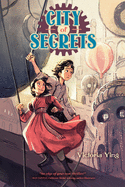
| Publisher: | Viking Books for Young Readers | |
| Genre: | Fantasy & Magic, General, Steampunk, Juvenile Fiction, Comics & Graphic Novels | |
| ISBN: | 9780593114490 | |
| Pub Date: | July 2020 | |
| Price: | $14.99 |
| Children's & Young Adult |
by Victoria Ying
Secrets will out in thrilling ways as a wary orphan and an adventure-prone heiress face deadly peril in this action-packed first authored graphic novel from Victoria Ying (Diana: Princess of the Amazons).
Built in layers like a wedding cake, the Grand Capital City of Oskars needs a way to keep communication flowing through its levels. Madame Alexander oversees a staff of young women who connect calls at the Switchboard Operating Facility, a building with six stories of lever-and-gear-operated moving platforms and staircases. When Hannah, the spitfire daughter of the Switchboard's wealthy owner, stumbles across Ever Barnes, an orphan boy hiding in the facility, her efforts to befriend him fail miserably. After the brutal murder of his father and his own narrow escape, Ever is alone in the world but committed to protecting his family's secret: a hidden vault in the Switchboard that supposedly contains a way to protect Oskars. He trusts no one, but when Hannah saves his life from another murder attempt, Ever thaws. Soon they become allies in an uncertain world where loved ones and Switchboard operators alike hide deadly secrets, and only their friendship and ingenuity can stop the city's enemies.
Action comes first in this dazzling maze of spies, secret societies, deadly assassins and steampunk set pieces, culminating in an unpredictable climax with an anime-inspired twist. Ying winds the suspense tightly then leaves readers to wonder who is fair or foul. Crimson and gold accents over sepia-washed backgrounds evoke a feel of Victorian luxury, and the youth and energy of her lead characters resonate in her fluid portrayal of motion. Although Ying resolves the immediate crisis, nefarious villains still lurk in and outside Oskars, and hints of further secrets leave her room to pull the lever on a sequel. --Jaclyn Fulwood, youth services manager at Main Branch, Dayton Metro Library